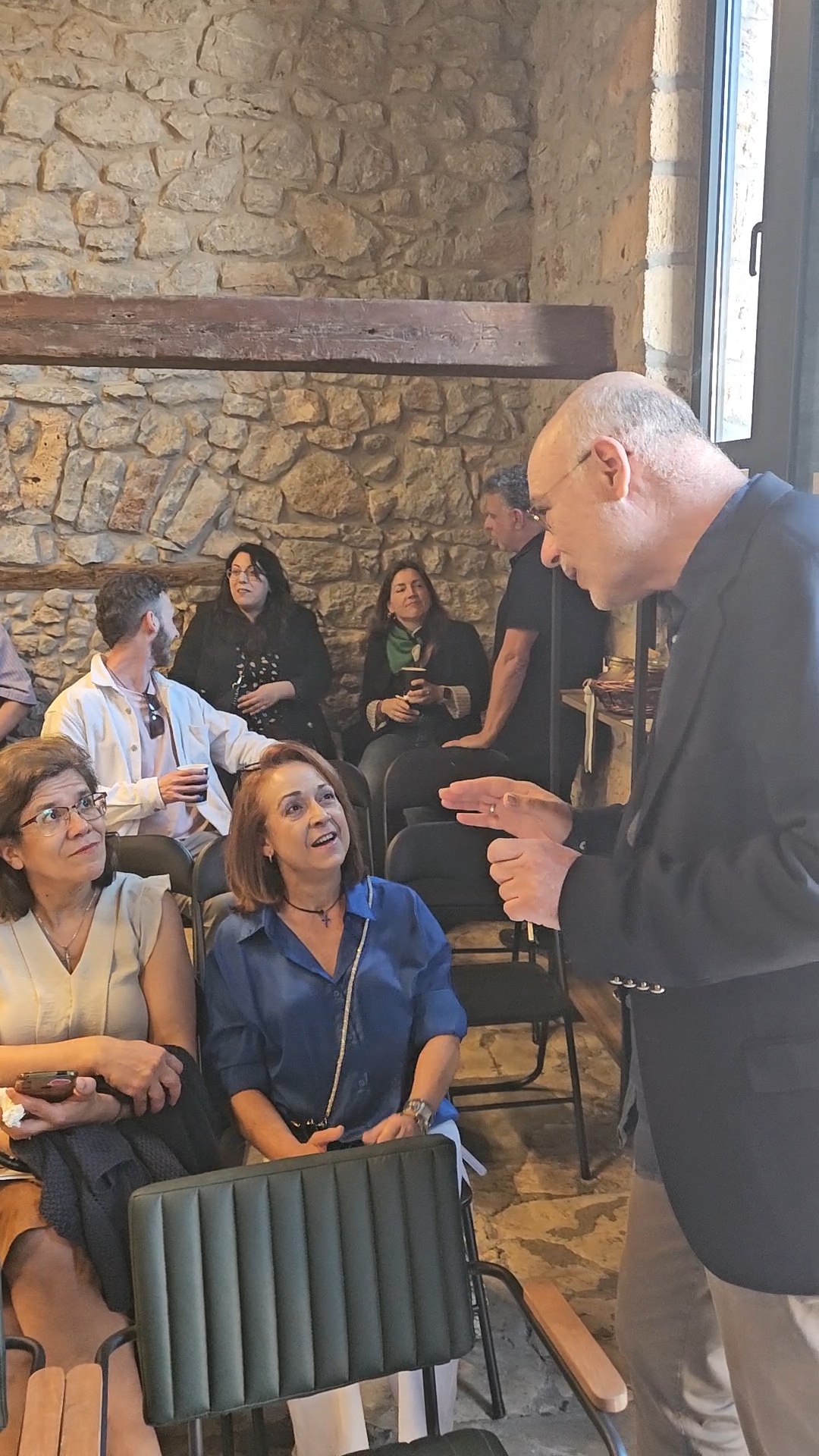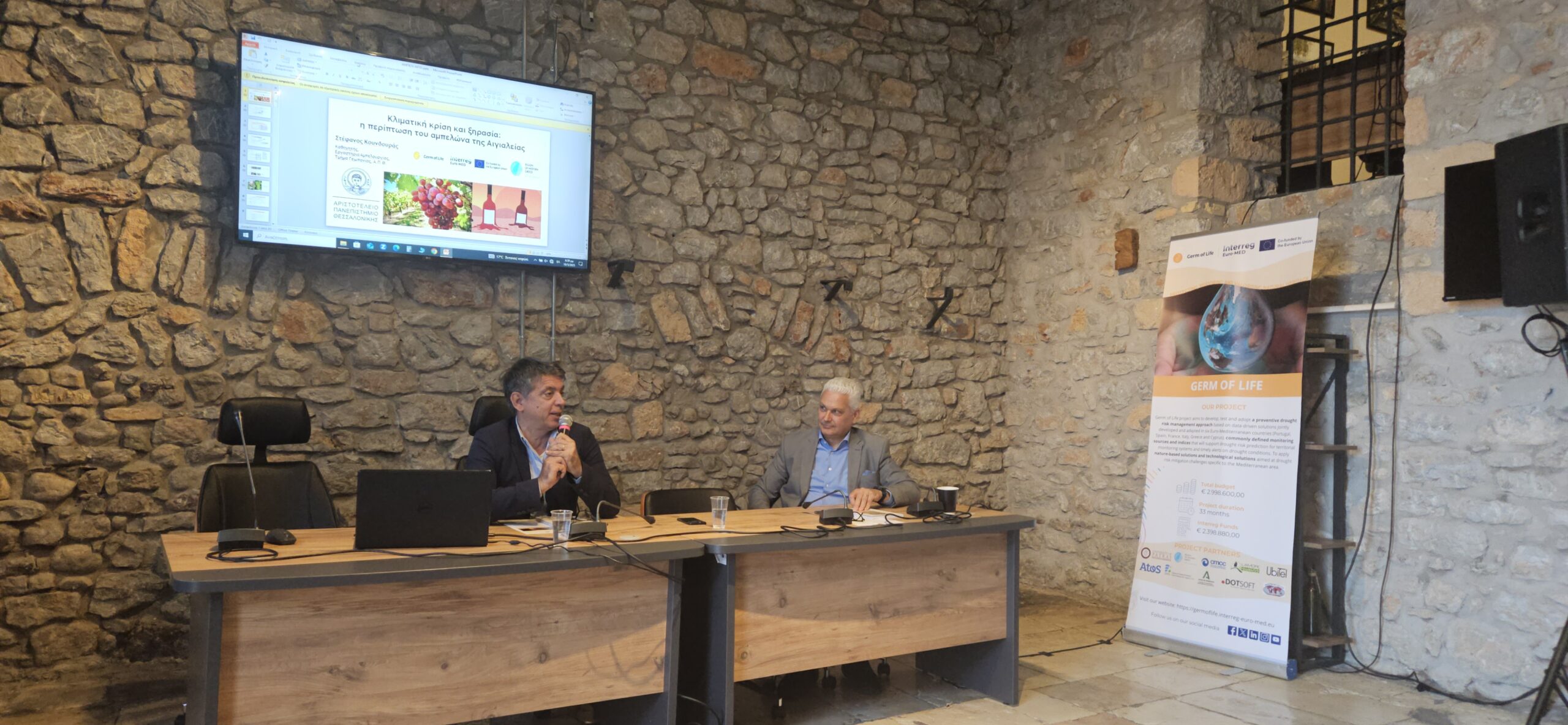An event of total success was organized in Aigion by the Region of Western Greece, on the theme “Drought and climate resilience. The example of the vineyards of Aegialia”, in the framework of the Germ of Life project, which is co-funded by Interreg Euro-MED.
At the event, there was an official presentation of the Pilot Meteorological Network of Aegialia, the utilization of which will contribute decisively to the optimal forecast and timely notification of drought conditions.
The Deputy Regional Governor of Achaia, Fokion Zaimis, in his greeting, mentioned, among other things, the following:
“Vigilance and mobilization are required in order to look for scientific tools and innovative methods, especially in the field of prevention, that will respond to the maximum possible extent to the problems posed by climate change”.
“One way is to make use of European programs that enhance the search for new scientific tools and new innovative methods, but at the same time promote the exchange of experience, which is particularly important”.
“Within the framework of this concept, a pilot meteorological network is being set up at the service of the winegrowers’ community of Aegialeia, which will monitor drought phenomena and warn producers”.
“In this way, we are opening up new paths in dealing with Climate Change, because the priority and choice must be the support of production and not the compensation of the disaster”.
“In fact, following the proposal of the producers, we will look for new European funds for the expansion of the network”.
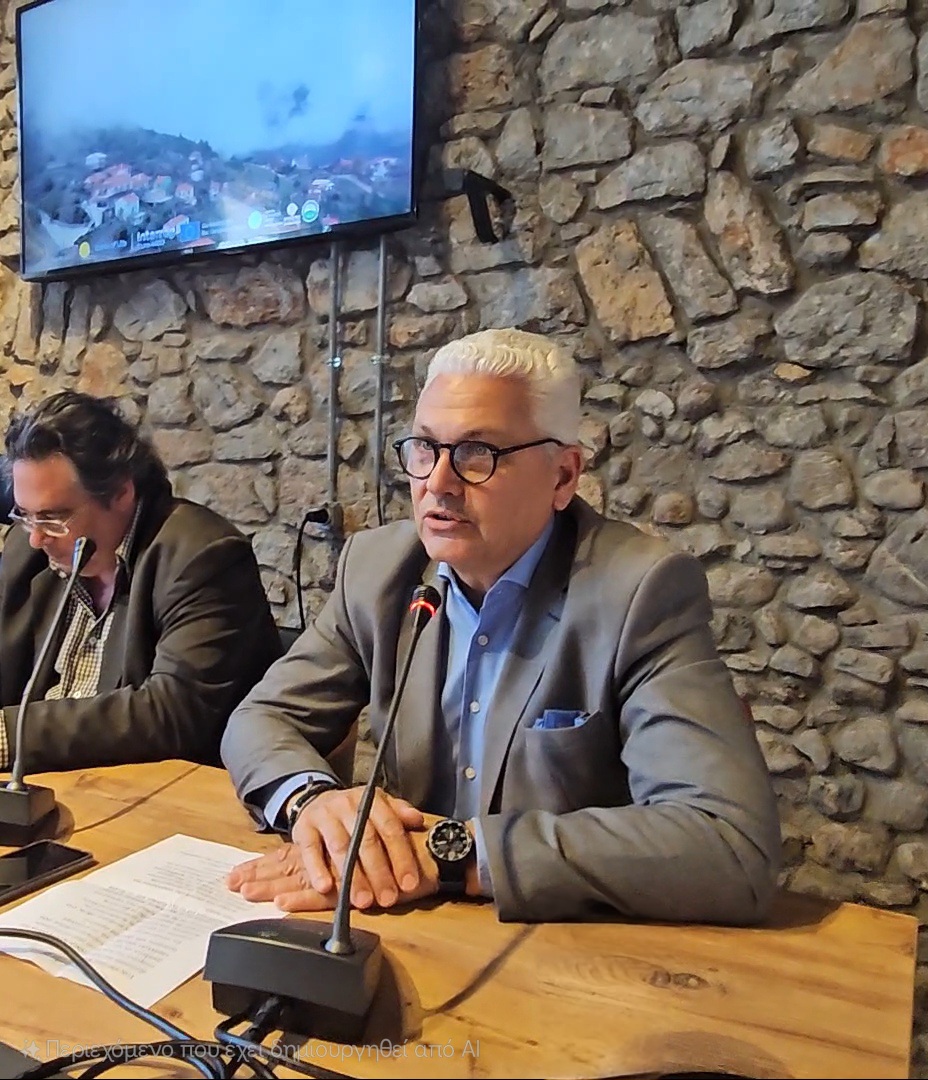
On his part, the Mayor of Aegialia, Panagiotis Andriopoulos, pointed out, among other things, the following:
“Extreme weather events, such as prolonged heat waves, extreme rainfall, drought, but also sudden changes in temperature, affect the sensitivity of the vineyard, directly affecting the quantity, quality and ripening time of the grapes. At the same time, the pressure from pests and diseases favored by the new climate regime is increasing”.
“For an area like Aegialeia, where wine is not only a product but a culture, the above are very serious challenges. The need to adapt agriculture to the new conditions, with modern practices, scientific knowledge and sustainable cultivation techniques, is imperative”.
“Today’s event aims to inform, reflect and mobilize. We support every effort that unites science with local production, with the aim of ensuring the continuity and resilience of our viticultural tradition”.
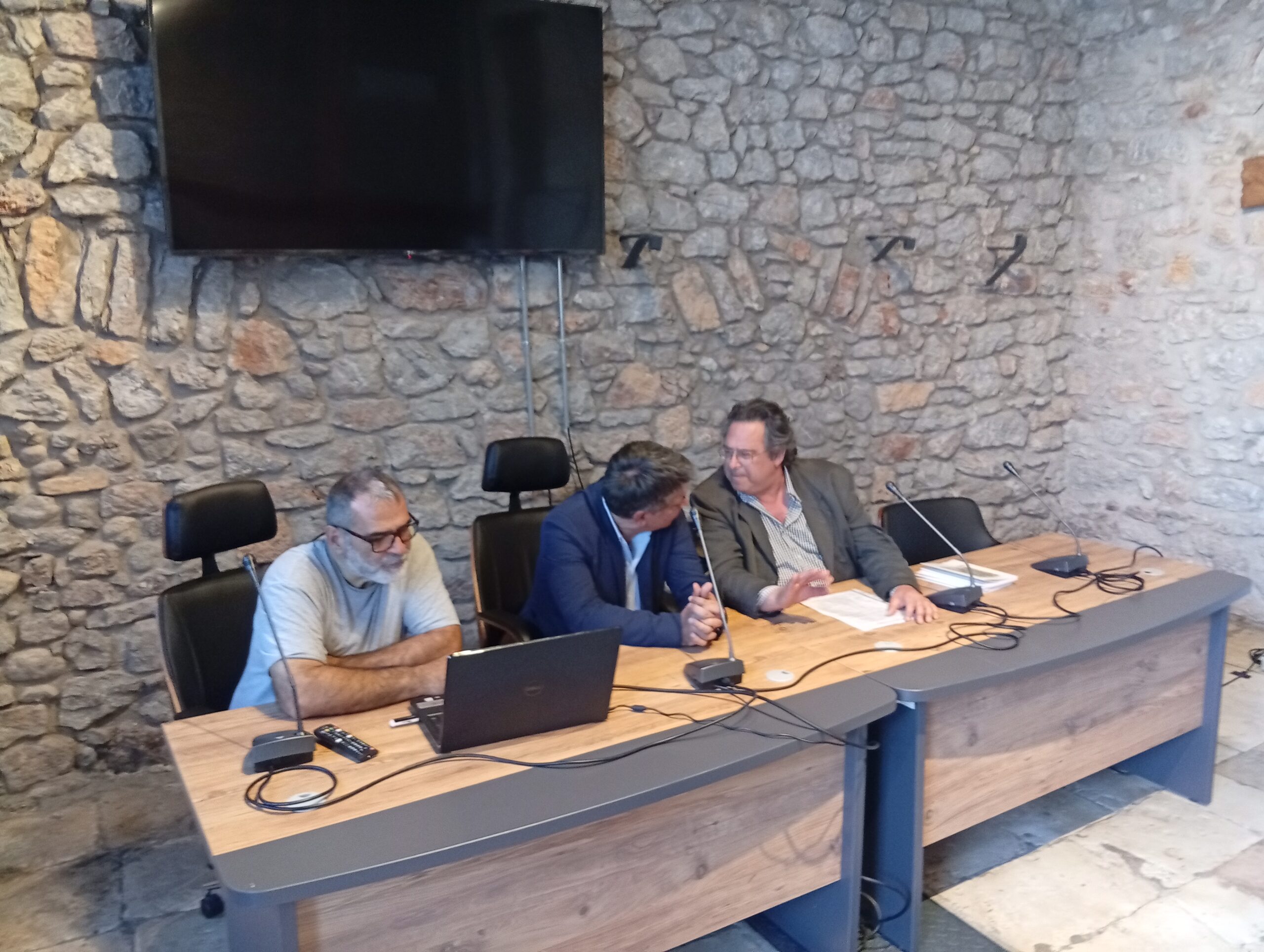
The president of the Oinoxenia network, Mr. Tasos Drosidis, pointed out the following:
“Climate instability creates a new environment of uncertainty for farmers and requires the adoption of adaptation and resilience strategies, particularly in high-value crops such as vineyards”.
“Climate change is bringing about significant changes in rainfall and temperature patterns, resulting in an increase in the frequency and intensity of droughts. Vineyards, as crops of high value and sensitivity, are directly affected by these changes, as the lack of water and extreme temperatures affect plant growth, grape quality and, by extension, wine production”.
“Monitoring climate data and using forecasting technologies can help winegrowers make timely decisions. For this reason, the initiative for the installation of weather stations in order to collect and process data in order to produce knowledge and early warning”.
“Enhancing the resilience of vineyards is not only a matter of agricultural sustainability, but also of cultural preservation, as wine is an integral element of the local identity and economy in many regions of Greece”.
The meteorological station of Aegialia was presented by Mr. Athanasios Argyriou, Professor of Atmospheric Physics of the University of Patras and coordinator of the project, who said, among other things:
“The central meteorological station, which has already been installed and is operated. The station collects data concerning:
Temperature – Atmospheric humidity
Speed – Wind Direction
Photosynthetic radiation NDVI
Temperature – Soil moisture at three depths
These data are available in an instant, and every ten minutes the system offers a summary assessment of the data.
The station will be immediately enhanced with artificial intelligence by the French company Atos (Germ of Life partner), one of the largest of its kind in Europe. In this way, it will be able to predict drought phenomena to the best possible extent”.
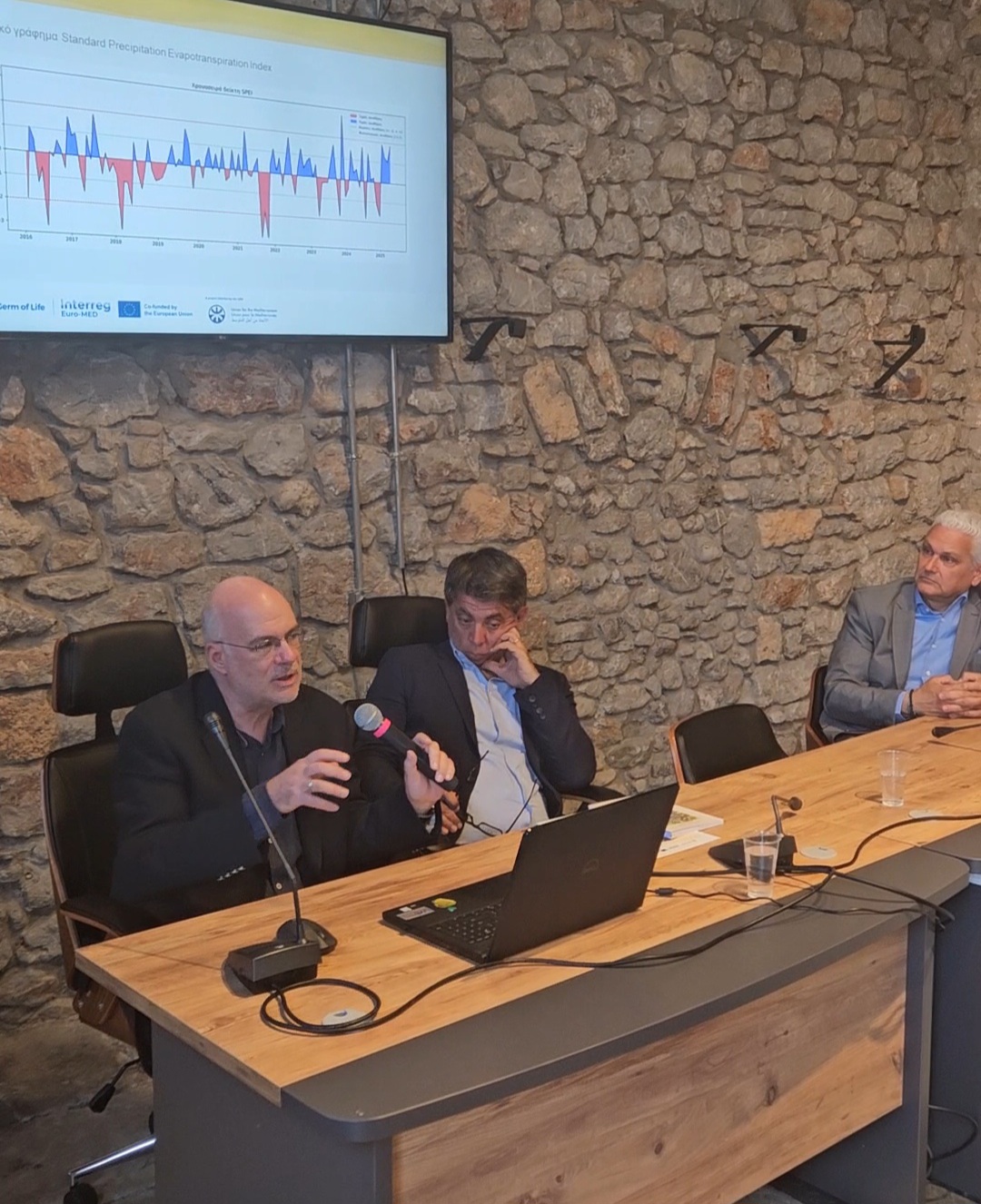
Finally, Mr. Stefanos Koundouras, Professor of Viticulture at the Aristotle University of Thessaloniki, presented detailed data on the effects of drought on viticulture, and as he said:
“A study by our University showed that in the last 15 years, minimum temperatures have increased throughout the country”.
“This fact has increased the degree of difficulty in the production of quality wine and has brought about changes in the cultivation and production chain, since in many cases it has brought the harvest period much closer”.
“With these data, the forecast of drought phenomena is of particular importance, especially for the viticulture sector”.
“However, for the vineyards of Aegialia, I am more optimistic, due to the proximity to the sea and the morphology of the soil, which is open to the winds, elements that offer a favorable microclimate, compared to other areas”.
